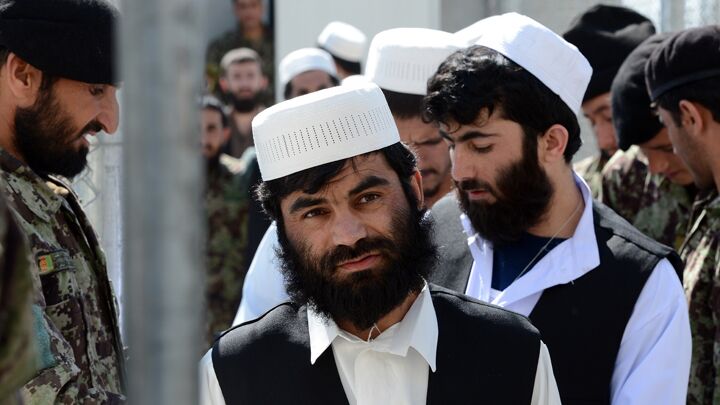
Afghanistan Jailbreak in Bagram
There has been a jail break in Afghanistan. Hardened terrorist prisoners, many with the blood of U.S. servicemen on their hands, have fled Bagram Prison—also known as the Parwan Detention Facility. More are set to escape in the near future.
The prisoners aren’t scaling the walls or tunneling to freedom. On the contrary, the terrorists are walking out the front door as pardoned free men. That’s right. Men who trained children as suicide bombers, men who made bombs, terrorists that killed and maimed Afghans and coalition forces alike are now being celebrated in their home communities as heroes.
How is this possible? Well, these terrorists aren’t U.S. prisoners anymore. The prisons don’t belong to America anymore. In March last year, the U.S. turned control of the prisons to the Afghan government. The U.S. was reluctant to do so because it feared that the prisoners would be released, particularly those awaiting trial. The day that the prison was handed over, 16 prisoners were released in a short ceremony, a sign of things to come.
It hasn’t taken long for the Afghan Review Board—which has power to hold or release prisoners at will—to start sending the prisoners home to their families, and to their jihad. Of the 650 prisoners that were officially pardoned by the three-man panel, 562 have been released. The last 88 to be released are those the U.S. is most concerned about. American officials are trying to block the release of these men, and for good reason.
According to Reuters, “About 40 percent of the prisoners were directly responsible for wounding or killing 57 Afghan civilians and security forces, and 30 percent had participated in direct attacks that killed or wounded 60 U.S. and coalition troops, a U.S. official said.”
It is inevitable that most of these prisoners will be folded right back into the terrorists’ ranks. There are many such examples where prisoners go back to their bloody work. Once example cited by Afghan officials in a New York Times article is that of Mullah Ghulam Mohammad who, once released, returned to northern Afghanistan and now commands an estimated 500 fighters.
The terrorists are going back to their families as heroes, undoubtedly with renewed hatred for U.S. and coalition forces. Spokesman for U.S. forces in Afghanistan Col. Dave Lapan said that the last 88 that are about to be released “are legitimate threats for whom there is strong evidence supporting prosecution or further investigation.”
The handover of the largest U.S. base and detention facility in the country to Afghan forces was conditional upon the Afghanis not releasing “dangerous” inmates without review. To avoid this obligation, the Afghan Review Board just dismisses charges made against the inmates, saying that “In many cases, detainees were wrongly linked to certain incidents they were not involved in.” That was the excuse given by Abdul Shakor Dadras, one of the three men on the panel.
The mass prisoner release is also one more proof of the disastrous relationship between Washington and Afghan President Hamid Karzai. Tensions are high at the moment, and Karzai has not signed a security pact with the United States. If no agreement is signed, the “zero option”—complete withdrawal of U.S. troops from the country—will come into effect. Karzai’s refusal to cooperate with the U.S. is a telltale sign of America’s diminishing impact on the war-torn nation.
Releasing prisoners back into the population, surrendering bases, and withdrawing all troops before defeating the enemy: these are all signs of defeat. The war in Afghanistan hasn’t been a victory. This much is obvious when any open-minded observer takes in the current situation.
What is less understood is the fact that America is not winning any of its battles any more—and hasn’t for some time. Herbert W. Armstrong explained the incredible reason for these defeats in the October 1961 Plain Truth. He said that “unless or until the United States as a whole repents and returns to what has become a hollow slogan on its dollars: ‘In God we trust,’ the United States of America has won its last war!”
This statement and many more have since been proven true by decades of repeated failure. As columnist Steven Flurry wrote: “There is a reason Mr. Armstrong correctly predicted after World War ii that America would lose the will to use its power and never again win a war. He knew that when God said He would “break the pride of your power” in Leviticus 26:19, He was referring primarily to the United States in this end time.”
Once more, we see that dire warning coming to pass today in Afghanistan where all our work is being undone, and terrorists are once again roaming the streets.
If you want to see more of the prophecies that Mr. Armstrong explained, which later came to pass, request a free copy of He Was Right, and see for yourself the powerful fulfillment of Bible prophecy.
